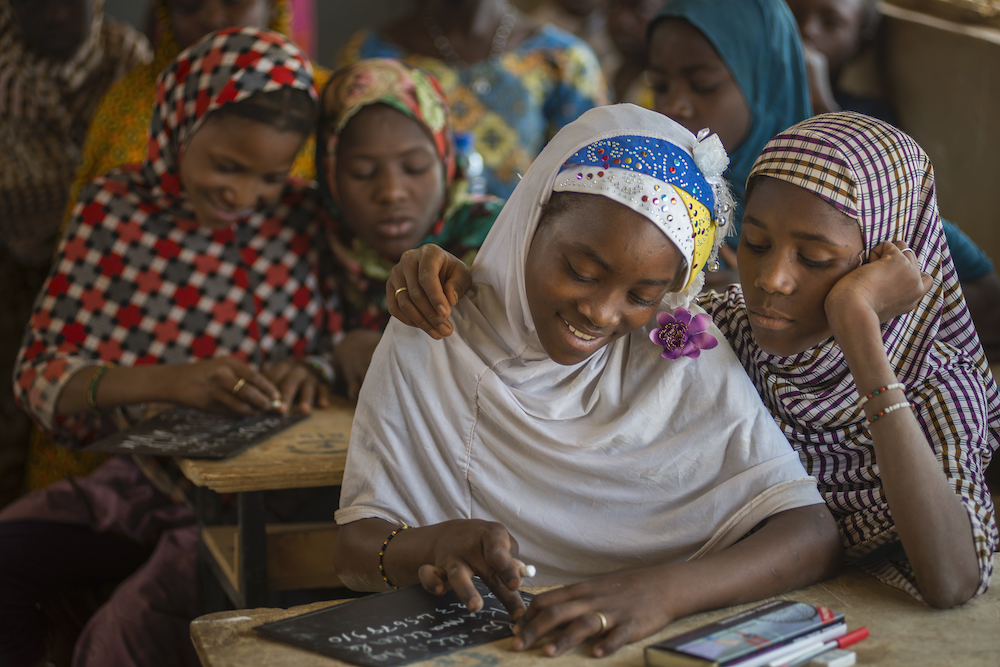
The cost-effectiveness of accelerated learning programs and the added value of on-site coaching on the learning and transition outcomes of out-of-school children in northern Nigeria
During two years of intervention, about 20,000 eligible out-of-school children will receive structured instruction in literacy, numeracy, and social-emotional learning. Researchers from the IRC are conducting a mixed methods, randomized control trial to evaluate the cost-effectiveness of the program on the learning and transition outcomes.
The Education in Emergencies Nonformal Learning Centers project was funded by the UK Department for International Development to support out-of-school children in the states of Yobe and Borno in Nigeria with their education and psychosocial well-being.
The IRC and Creative provided out-of-school children between the ages of 9-14 with quality learning opportunities to develop basic literacy and numeracy skills, heal from the traumatic effects of displacement and violence, and transition into formal schools. During two years of intervention, about 20,000 eligible out-of-school children received structured instruction in literacy, numeracy, and social-emotional learning.
Researchers from the IRC conducted a mixed methods, randomized control trial to evaluate the cost-effectiveness of the program on the learning and transition outcomes of out-of-school children in northern Nigeria, and the added value of providing on-site coaching visits to learning facilitators.
Publications
- Endline Research Brief
- Baseline Research Brief
- Impact Evaluation Report - Cohort 3
- The Cost-Effectiveness of an Accelerated Learning Program on the Literacy, Numeracy and Social-Emotional Learning Outcomes of Out-of-School Children in Northeast Nigeria: Evidence from a Mixed Methods Randomized Controlled Trial
- Education Cost-Effectiveness Brief - ALP & Coaching
- Ingredients List - ALP Nigeria
- Ingredients List - Coaching Nigeria